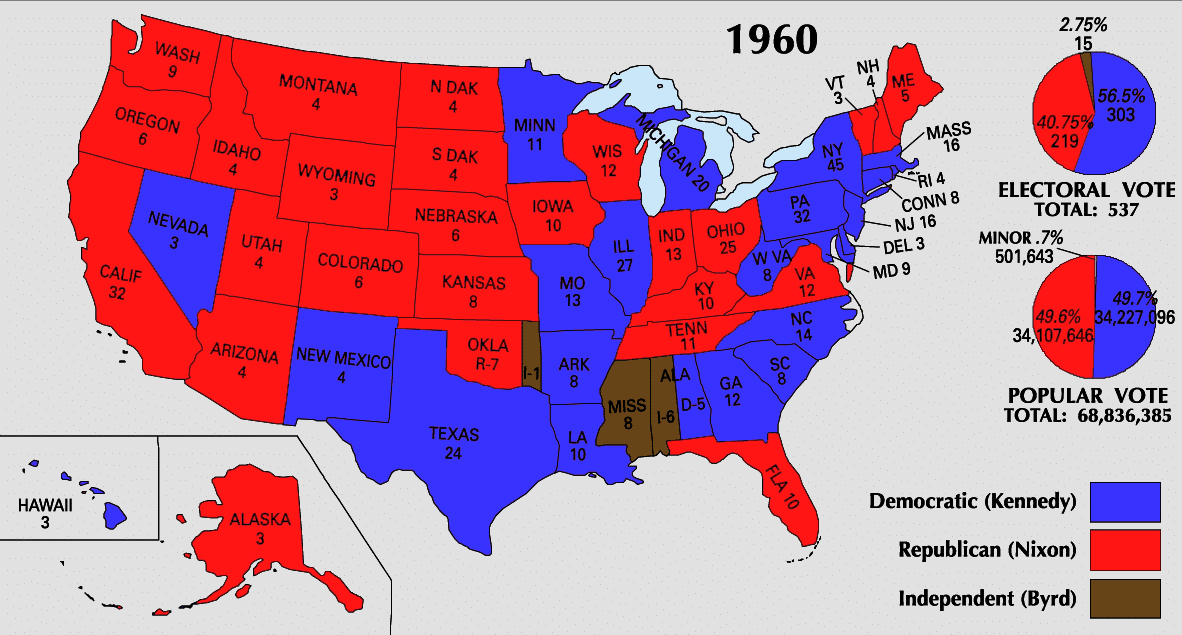The Presidential Election of 1960 put two future political forces against one another.

Dwight Eisenhower had been a popular president and had done well during the Cold War and in managing the economy. However, it was time to move to a different leader, and times were quickly changing.
Civil Rights for African-Americans was continuing to progress and became a significant issue. Jackie Robinson entered baseball in 1947, and the Rosa Parks Bus incident that ignited a boycott occurred in 1955. Candidates had kicked the can down the road with Civil Rights, and while Harry Truman campaigned for the African-Americans in the election of 1948, he did not do much to help them.
By 1960, there were a few things looming. Despite Truman's unpopularity, the foreign policy of the day remained contained even throughout the Eisenhower campaign. Vietnam had begun to convert to Communism, much like North Korea and the United States were beginning to take notice.
This would also be the first election in which television would play a major role.
The candidates were as follows:
Republicans: Richard Nixon and Vice President Henry Cabot Lodge Jr
Democrats: John F. Kennedy and Vice President Lyndon Johnson
Platforms
Republicans: The Republicans planned to continue with Eisenhower's popularity and wanted to continue his policies. Nixon also argued that with the nation engaged in the Cold War with the Soviets, Kennedy was too young and inexperienced to be trusted with the presidency. Had Nixon been elected, at 48 years, 11 days, he would have been the fourth-youngest president at the date of inauguration.
Democrats: John F. Kennedy took a different approach. He did not focus on Civil Rights but rather on the space program. Eisenhower had created NASA in 1958, but Kennedy believed that the United States needed to beat Russia to the moon. During Kennedy's campaign, he relied on his youth and promised to bring about change. Kennedy had a slogan emphasizing his youth reading, "who's seasoned through and through/but not so dog-gone seasoned that he won't try something new." He was also endorsed by celebrities such as Henry Fonda and Harry Belafonte.
Outcome
The television debate played a significant role in the election.
Despite their small age difference, Nixon appeared as an old politician, while Kennedy's energy and vision came through on camera.
There was not a significant difference between the two candidates, so the visual of them meant quite a bit. Kennedy portrayed a more confident and energetic candidate and was able to articulate his vision to the American people, which would aid him.
Kennedy simply handled every issue that was thrown at him with class and understanding. He squashed the accusations that a Catholic would harm the Protestants and a northerner would harm the Southerners.
He took some key red states that would allow him to be in the Presidency.
It was not a landslide, but it was a significant victory for the Democrats.
